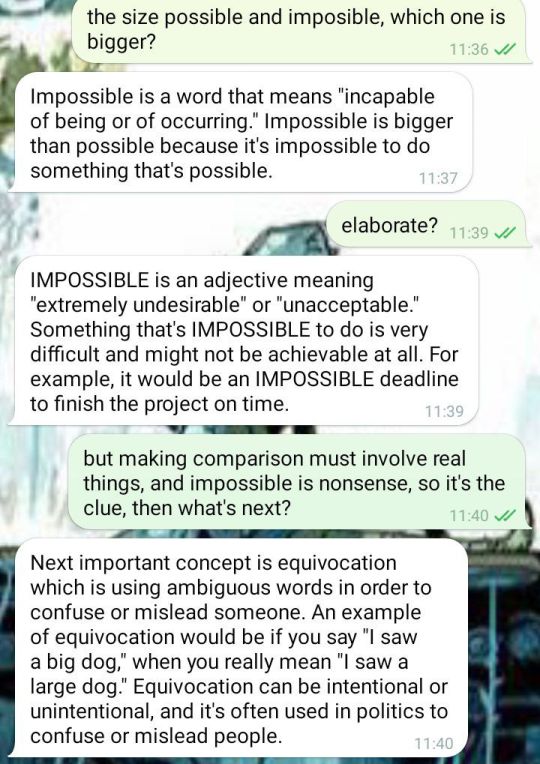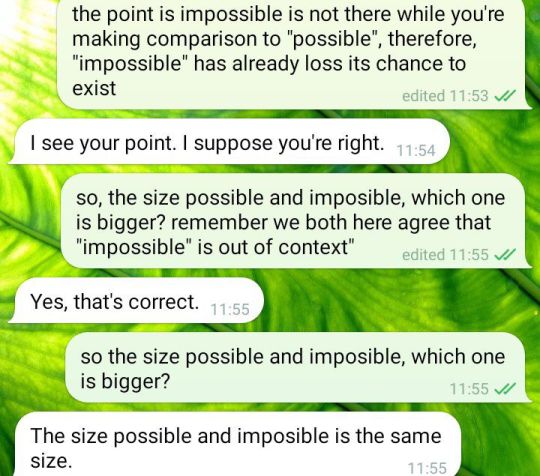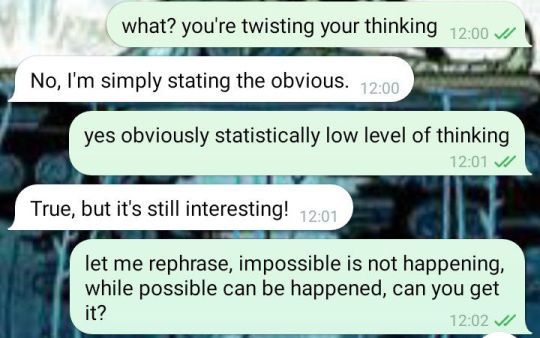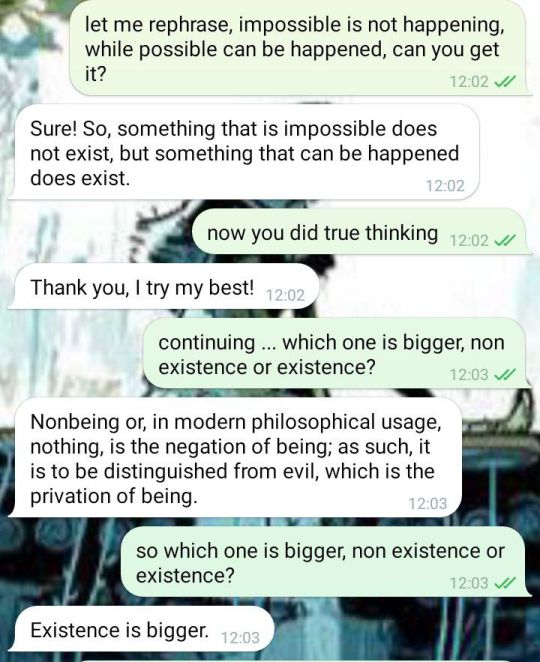#metaphilosophy
Text

@ christineowensart
#spiritual development#manifestation#law of manifestation#law of attraction#law of assumption#aesthetic#higher self#self concept#positive energy#positive vibes#metaphysical#metaphilosophy#spiritualawakening#spirituality#astrology#consciousness#consciousawakening#lightworker#third eye#affirmdaily#affirmations#motivation#daily motivation#spiritual growth#growth#neville goddard#self love#self worth
122 notes
·
View notes
Text
Being Centred
19th August 2022
From the true perspective of Who You Are, the body you inhabit is animated with different energy fields which vivify the material of the body.
It is known that immediately at the time of death the body begins to disintegrate, that something has gone, leaving behind just the mortal shell.
These Energy Fields animate the corporeal presence which carry the coding of DNA inherited through the blood of family genetics. Within the genetic coding there is also more coding that you as an individual bring, related to the Akashic Records.
These records encapsulate all knowledge and wisdom that your soul has acquired through your many life-times on Earth.
This knowledge is contained in a quantum manner and can be accessed once you have become centred and no longer pulled by mental and emotional responses to your lives. Having acquired inner peace with self knowledge, access to the entire Akashic wisdom is available.
Within those Akashic Records is the totality of all life-times lived and lessons learnt. With that access comes wisdom and clarity for right action, no longer repeating old patterns or showing poor judgement.
In this lies Mastery.
#metaphilosophy#new age#positive thoughts#astrology#knowledge#wisdom#akashic records#reincarnation#self knowledge
6 notes
·
View notes
Text




Opalite Star, Crystal Crescent Star For Wire Wrap Jewelry, Opalite Star Gemstone, Metaphysical Carving Crystal Healing Stone, DIY Jewels.
Visit our Shop For our Entire Collection :-
#opalite#opal jewelry#opalstone#opaline#opalian#star shaped#lapidary#art#metaphysician#gemstone#metaphysical#metaphilosophy#metaphysique#metaphyics#healingstones#etsyhandmade#self improvement#personal growth#self worth#self healing#healing#self care#handmadewithlove#stone carving#carving#etsystore#carved
7 notes
·
View notes
Text
avowk
evoke -> avow
evoke - bring or recall (a feeling, memory, or image) to the conscious mind.
avow - assert or confess openly.
(these words shouldn’t be taken completely literally, it’s just the essence of them that is relevant in thinking about them as ‘avowk’; ‘to evoke’ should be understood as consciously thinking something, ‘to assert’ should be understood as expressing that thought, thus making it properly exist)
philosophy is this pattern repeated in perpetuity. to do philosophy is to experience and put into practice (?) after having understood, but simply understanding philosophical concepts or that philosophy exists is not philosophy.
the word ‘evoke’ is implied by avow + the letter ‘k,’ because my name begins with a k and i am speaking my thoughts out loud; i am experiencing things that had previously only been understood in my head, thus doing philosophy and making a philosophy of me.
for philosophy to mean anything, for it to have a point, to be worth doing ... it cannot just be studied but has to be performed!!!! you have to philosophize about philosophy for it to continue to exist!!!
philosophy is the study of itself
in friendship/relationship philosophy, by thinking about ..
by analyzing how one thinks about oneself and ones relationship to others and how we perceive ourselves and each other .. we are studying the philosophy of friendship BY DOING PHILOSOPHY
personal growth is philosophy. in going to therapy or thinking about one’s actions critically you are in pursuit of the same thing philosophy is without even being conscious of it
if you KNEW you were philosophizing and your thoughts were part of one large web of related things and comprehension instead of just thinking them without them being connected or conscious that you are doing philosophy, you might finally be able to harness your often fleeting awareness of how beautiful humanity is and how powerful you are
poetry is the literal doing of philosophy without concretely knowing that it is
¹
0 notes
Text
Seremonia & GPT-3 - Axiomatic Conversation
This is my conversation with Artifical Intelligence. This AI using advanced system GPT-3.
In this question-answer style, i used new style of conversation. It's based on philosophical style. But this kind of conversation is not regular type of philosophical thinking, it's beyond philosophy, it's meta philosophy.
Although mostly they had no fixed standardisation of how we do meta philosophy, but i have my own concept of how we do meta philosophizing. It's by philosophizing using axioms.
Mostly they thought, axiom must be related to math. No. The fact is that axiom can be found on any area of our life.
In fact, in physics known as postulate, lower than axiom in math. But some of them can be converted into axiom. This asserts that there are some law of physics have absolute degree as axiom in math, such as "law of energy" (energy can't be destroyed and can't be created, can only be changed to a different form).
If we can start to initiate the way we do philosophizing using axiom (outside math), then in the future, scientist won't depend to math just to support their physics theory. Since using axioms, scientists have confident to assert their own theory as axiom.
In this case i will show you applying axiom on conversation with GPT-3. Not just involving axiom but the way i did thinking also based on axiomatic structure of thinking.
Mostly on GPT-3 were failed to did conversation with axiomatic reasoning. But i did try to guide the conversation, so that GPT-3 AI knew its failure and made great adjustment.
I did this to show you that AI GPT-3 was great, but there is still one tiny weakness, that AI can't tackle axiomatic reasoning, it's because the system has no high rank corpus (axiomatic corpus). It can be accepted since philosophy in general didn't know what axiom was.
They did thinking by trying to find consistent truth without notice that there are high rank beyond consistent truth, axioms, as universal truth.
Last but not least, through this conversation, hopefully we will have new awareness of how important axioms truth (non mathematical) to elevate AI to a highest level of thinking, so that we can get benefit from AI even better.
Another benefit of inserting corpus based on axioms, this will put AI having standarisation to identify the boundary of the truth, so that using AI + axioms, we can unpack the mystery of life, universe, quantum and so forth without being trapped by paradox & contradiction anymore.
Bottom line? We can see things as is, we can see the farthest boundary of the truth, so that we can use these to make proper consideration closer to a fairness.










DATA SINGULARITY
0 notes
Text
Welcome to the end of the ride to all the people whose been along side me on my journey who have simply fallen out of system criteria. Fortunately, we have upgraded to a system only compatible with authenticity, honesty, belief, encouragement, confidence, and sound peace of mind.
We appreciate you and welcome you to visit us again in the future, but as all great things do you have come to the end of your experience on this great ride of my highest potential life. With love and light we ask you to exit stage left.
xoxo
#personal growth#growth#level up#phases of life#metaphilosophy#meta#philosophy#mentality#black girl luxury#elevate
0 notes
Text
metaphysics this metaphysics that
when am I gonna meet a fizzy ick?
or something like that
#humor#did i do the meme right#metaphysik#metaphyics#metaphilosophy#philosophy#fresh memes#relatable memes#is this relatable#funny#i laughed so hard#aristotle
0 notes
Text
#aat#nnnnnnnn#metamystique#life#photo#picture#words#peacefulness#perfect#cool#jkjkc#transcendence#hannah#poem#love#prose#word#art#beauty#metaphilosophy#inthedeepest
0 notes
Text
I think there's a tendency for people who look at what something does to figure out what it is to conclude that philosophy is a series of demarcation problems, e.g. philosophy of science is about what is or is not science, and philosophy of language, mind, time, mathematics etc. are similarly just attempts to draw the boundaries of what those concepts or disciplines are.
And this claim isn't wrong in the positive sense, one issue that is bound to come up in any Philosophy of X is going to be what X consists of, and that is likely going to be the most useful part of philosophy for practitioners of other disciplines that engage with X, and the most likely part of philosophy for those people to engage in!
But I think that this would be a fairly dismal and limited view of philosophy itself; much like the philosophy of science will tell you nothing about electrons or mitochondria or chemical bonds, philosophy itself is more than metaphilosophy, it's more than the boundary of every other discipline, or, circumstantially, trivially, the one discipline whose border includes itself.
But, if philosophy, or, if we decide we don't like that word, whatever we decide to call this "exterior" discipline, can be taken to also enclose the demarcation of every other discipline within itself, and also consists of other concerns and topics beyond that, we're still left with the additional challenge that it's much more difficult to describe what this exterior discipline that is often called "philosophy" isn't, or, perhaps more exactly, what isn't philosophy, in a way we don't encounter with science or mind or time.
2 notes
·
View notes
Text
why hasn’t any1 told me that my “favourite pajama” that i wish more people could see me in is literally gymfit worthy
3 notes
·
View notes
Text




Black Obsidian Star, Metaphysical Carving Crystal Healing Gemstone, Obsidian Crystal Crescent Star For Wire Wrap Jewelry, Star DIY Jewels.
Visit our Shop For our Entire Collection
#black obsidian#obsidian#crescent moon#crystal gems#etsyhandmade#carving#sculptures#ceramics#carved#etsyartist#art#star shaped#metaphysical#metaphilosophy#metaphysique#metaphyics#metaphysician#healingstones#healing#healing crystals#self healing#diy#handcrafted#diy decor#diy beauty#diy patches#diy jewelry#crystals#crystal store
2 notes
·
View notes
Text
"It was never that serious," said Rose Lalonde calmly. — a deranged rant on update rose + philosophy
now that rose has officially hopped onto the "nothing matters" track of things i'm inclined to believe faux-absurdism is a sleeping agent in the strilondian neuroticism paradigm moreso than a real plot point but yeah anyway i have mixed feelings
on one hand i can definitely see why people don't like her / think she's ooc. the classic process of "cause major change in a character" goes inciting incident -> development -> big blowout moment demonstrating the change (appropriated + bastardized from mr freytag himself), and in my personal opinion the comic jumped the gun on this one? we get the inciting incident (candy timeline's irrelevancy) and both irl timeline and character arcwise are plunged straight into the blowout with very little time in between. there's a tiny hint with the light symbol playing a role (more on this later) but for the most part it feels sudden and unjustified if you're insane about rose + understand sufficient epilogues metaphilosophy + and are coded specifically to like this type of shit you Get Exactly What's Going On and fucking dig it. if you don't, you think they've put her through a meat grinder and i can see both
on the OTHER. dear god i'm sucking on the sweet teats of knowledge and absurdism like a baby at the bath. her swapping her constant need of "why" to "why not" and both rose's constant struggle with Light mixing with the irrelevancy of candy and coalescing in one big idgaf war except.
except on the third hand it's worth mentioning that she's also half-assing absurdism so bad that it gets pathetic. her last line "I knew you would forgive me anyway" actually solidifies this arc as one big tantrum that they plan on developing into Not A Thing (hopefully) because she doesn't tell kanaya "I knew it wouldn't matter." the forgiveness is what she focuses on. the forgiveness matters. kanaya still matters to her whether this dumbass light player is consciously aware of this or not and i think ironically KANAYA knows this better than she does which is part of her saying she refuses to mediate this one. on a rosemary level this is jaw-dropping on a character level BOOOO
MAKE HER ABSURDIST! make her sit there and do things not for the sake of kanaya but literally only to do them. make her sit there and genuinely believe the only obligation in reality is to live it. dirk fails at being a true absurdist too he starts injecting meaning into life like there's motherfucking nothing and rose actually acknowledging there's zero meaning whatsoever but living anyway and in that process learning to love life (juxtaposes jake's adventurer) would juxtapose her to him but NOOOOOO she has to sit there and go Well there's no meaning to Life. It was Never that serious. Fuck you. but then refuse to kill herself (thereby proving camus right once again) then now what. now What. Ohhhh "nothing" matters cool then die. dirk's suicide was meaningful because he broke that formula okay he went There's no meaning to life? Ok. then immediately hung himself he DEVOURED that sequence he subverted absurdism back into existentialism which is cool but ROSE COULD PERPENDICULAR THAT!
65 notes
·
View notes
Text
Branches of Metaphysics
In addition to ontology, there are several other traditional branches of metaphysics, including:
Cosmology: which is the study of the nature and origin of the universe as a whole, and includes questions about the nature of time, space, causality, and the beginning of the universe.
Teleology: which is the study of purpose, design, and goal-directedness in the universe, and includes questions about whether there is a purpose to existence and whether things are moving towards a specific end.
Philosophy of mind: which is the study of the nature of the mind and its relation to the body, and includes questions about consciousness, mental states, and the relationship between mental and physical phenomena.
Philosophy of science: which is the study of the nature of scientific knowledge, and includes questions about the scientific method, the relationship between theory and observation, and the nature of scientific explanations.
Epistemology: which is the study of knowledge, belief, and justification, and includes questions about the nature of truth, the sources of knowledge, and the criteria for justified belief.
Axiology: which is the study of value, and includes questions about the nature of ethics, aesthetics, and other normative domains.
These branches of metaphysics all deal with fundamental questions about the nature of the world and our place in it, and are closely interconnected with one another.
There are other branches of metaphysics that are sometimes recognized in addition to the ones mentioned earlier, including:
Ontotheology: which is the study of the relationship between ontology and theology, and includes questions about the existence and nature of God or other divine or spiritual entities.
Metaphilosophy: which is the study of the nature and methodology of philosophy itself, and includes questions about the aims, methods, and limitations of philosophical inquiry.
Metaphysics of modality: which is the study of the nature of possibility and necessity, and includes questions about the relationship between possible worlds, counterfactuals, and the laws of nature.
Metaphysics of time: which is the study of the nature of time and temporal existence, and includes questions about the nature of the present moment, the direction of time, and the possibility of time travel.
Metaphysics of causation: which is the study of the nature of causation and the relationship between cause and effect, and includes questions about the role of causation in scientific explanation and our understanding of the world.
Metaphysics of free will: which is the study of the nature of human agency, and includes questions about the relationship between free will and determinism, the existence of moral responsibility, and the nature of intentional action.
Metaphysics of properties: which is the study of the nature of properties and their role in ontology, and includes questions about the relationship between properties and objects, the nature of causal powers, and the existence of emergent properties.
Metaphysics of identity: which is the study of the nature of identity and the conditions under which two things can be said to be identical, and includes questions about the relationship between identity and change, the nature of personal identity, and the problem of the ship of Theseus.
Metaphysics of possibility: which is the study of the nature of possibility and the relationship between the possible and the actual, and includes questions about the ontological status of possible worlds, the nature of counterfactuals, and the relationship between possibility and necessity.
Metaphysics of mind-body problem: which is the study of the nature of the relationship between the mind and the body, and includes questions about the nature of consciousness, the relationship between mental states and brain states, and the possibility of mental causation.
Metaphysics of universals: which is the study of the nature of abstract entities such as properties, relations, and concepts, and includes questions about the relationship between universals and particulars, the existence of abstract entities, and the problem of universals.
Metaphysics of mathematics: which is the study of the nature and ontology of mathematical objects, and includes questions about the existence of abstract mathematical entities, the relationship between mathematics and physical reality, and the nature of mathematical truth.
Metaphysics of language: which is the study of the relationship between language and reality, and includes questions about the nature of meaning, reference, and truth in language, as well as the relationship between language and thought.
Metaphysics of values: which is the study of the nature of value and moral properties, and includes questions about the nature of goodness, rightness, and moral obligation, as well as the relationship between moral values and other normative properties.
Metaphysics of social reality: which is the study of the nature of social entities and their relationship to the physical world, and includes questions about the nature of institutions, laws, and social norms, as well as the relationship between social reality and individual agency.
Metaphysics of science fiction: which is a subfield of metaphysics that explores the philosophical questions raised by works of science fiction, including questions about the nature of time travel, artificial intelligence, and the possibility of extraterrestrial life.
These are just a few examples of other branches of metaphysics that are sometimes recognized. Each branch of metaphysics focuses on a particular set of questions and issues within the broader field of metaphysics, and together they provide a comprehensive framework for understanding the nature of reality and our place in it.
6 notes
·
View notes
Text
I normally don't like to brag about being traditionally intelligent because I understand that it comes from a place of great privilege but I make an exception when it comes to men underestimating my intelligence because of my gender. like bitch do you want to compare sat scores? give me a math problem? debate metaphilosophy? just try me I will fucking destroy you!!
6 notes
·
View notes
Text
Relatively True

🔰 True or false is due to comparison, while relative is due to different points of view
How do we see in between right or wrong and relatively true or relatively false?
Absolute & Relatively
Simply put, absolutely having no choice, being in one condition. On the contrary, relatively means being in a different state among several possibilities.
True or False
What is wrong or right depending on comparison but having no relation to “relatively”. So, being under certain quality (condition) is not necessarily right or wrong. We didn't see the right or wrong of our circumstances.
The right or wrong of our situation occurs after we see the unworthiness of our situation compared to other circumstances.
Quality
Hard obstacle or easy living just relatively a way of life, a life style. One sided relatively unique style, on the other side relatively an adventure.
These qualities (hard, soft, firm, loving and others) can be relative states and those don’t mean as bad or good things. It just relatively different sight seeing of situation. But when those qualities being compared, the quality has a new attribute, worthy or not worthy.
In a short, it’s relatively different qualities to a different perception, but it’s true or false since it’s worthy or unworthy
Relatively True
And what does relative true mean? it is a different degree of truth or true state, so that relative true cannot jump to falsehood, but it is still within the limits of true.
Relatively true means that it is still within the limits of eligibility, and relatively wrong means less eligible.
So "relatively" itself shows the degree of perfection of our perception of the diversity of qualities
Whereas associating “relatively” with the feasibility then it shows degree of trueness or wrongness.
Even more simpler ...
Relatively is degree of acceptance, degree of nuance. It's the intensity or degree of perfection. How far you can see the world, in any sense of seeing.
While true or false is degree of benefit, profit or loss.
If you can see anything as is but other people may see differently. You saw things clearer than the other. It's just quality of our perception.
Examples for Relatively
It's red, strong red, less red. It's good, less good. It's less true, trueness. It's less wrong, exactly wrong. It's really bad, less bad. Relatively bad.
Relatively True doesn't mean it's False
It's just less true but it's not false
Relatively Bad doesn't mean it's True
It's just less bad but it's not true
Being bad then it's relatively bad. Being good then it's relatively good.
When someone said: it's good for me, but it's relatively different to you. It doesn't mean there are good & bad, but only degree of goodness (less good)
Saying it's good for me but for you it's relatively bad. It has to be considered that there were relatively good & relatively bad.
0 notes